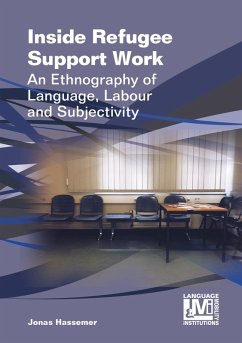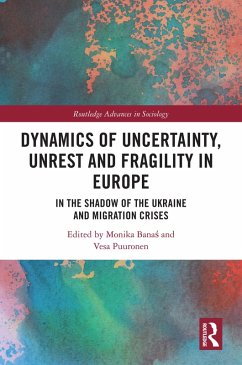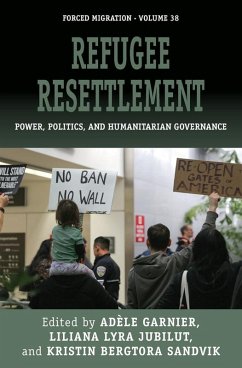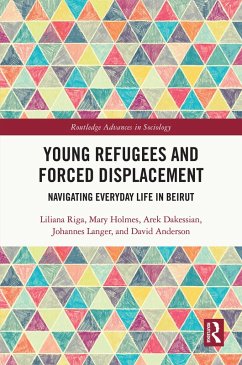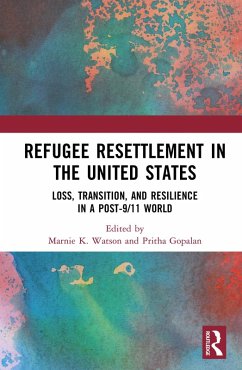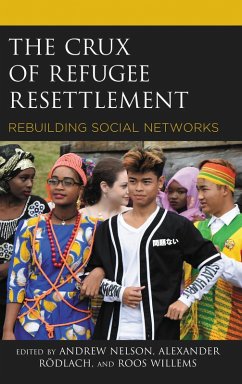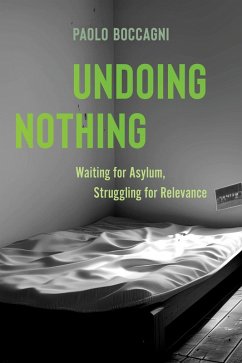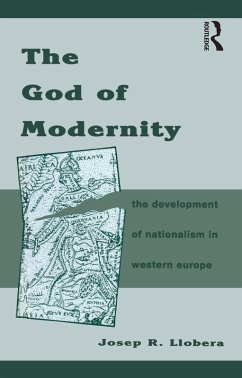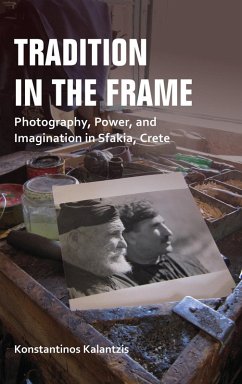
Refugee Support and Moral Practice in Slovakia (eBook, ePUB)
An Ethnographic Study

PAYBACK Punkte
13 °P sammeln!
Slovakia has never been a major destination for refugees or migrants and follows a strictly anti-refugee politics. Like other formerly socialist countries in Central Europe which are now EU member states-especially its fellow Visegrád countries Poland, Hungary, and the Czech Republic-Slovakia fiercely rejected refugee redistribution during the "long summer of 'migration" in 2015-2016. Meanwhile, the few refugees living in Slovakia face restrictive authorities and deficient support infrastructures. Building on ten months of ethnographic fieldwork carried out between 2017 and 2019 and focusing ...
Slovakia has never been a major destination for refugees or migrants and follows a strictly anti-refugee politics. Like other formerly socialist countries in Central Europe which are now EU member states-especially its fellow Visegrád countries Poland, Hungary, and the Czech Republic-Slovakia fiercely rejected refugee redistribution during the "long summer of 'migration" in 2015-2016. Meanwhile, the few refugees living in Slovakia face restrictive authorities and deficient support infrastructures. Building on ten months of ethnographic fieldwork carried out between 2017 and 2019 and focusing on those often-overlooked actors who do support refugees as NGO employees or volunteers, this book provides an empathetic and ethnographically rich account of their everyday efforts to accommodate 'refugees' needs and state 'authorities' expectations.
The book explores those engagements not as negotiation of political or ideological positions, but primarily as emotional and moral practices. It argues that moral codes and emotional templates shape the implementation of refugee support, structuring encounters and clashes between refugees, helpers, and bureaucrats. They generate lasting formal or informal solutions and even inform new policies in refugee care. Closely connected to this observation is a second finding, namely, that moral dilemmas and conflicting emotions often cause more distress and greater complications than the political controversies surrounding the topic. Actors on opposite ends of the political spectrum-like liberal NGO employees and state bureaucrats-experience the same conflicts of conscience and adopt the same indecisiveness.
These findings challenge the common characterization of the Slovak and other post-socialist societies as being divided between hegemonic populist, illiberal and xenophobic forces on one hand, and a much smaller and less influential liberal and cosmopolitan discourse on the other. Rather, actors blur or adapt their visions of what migration policy should ideally look like while engaging in the complicated practice of refugee care. The dynamics described in this book can increasingly be observed in western European countries as well, as mainstream political and public discourse has become more hostile towards refugees and the utterances from opponents and proponents of refugee solidarity have grown more alike since 2015.
The book explores those engagements not as negotiation of political or ideological positions, but primarily as emotional and moral practices. It argues that moral codes and emotional templates shape the implementation of refugee support, structuring encounters and clashes between refugees, helpers, and bureaucrats. They generate lasting formal or informal solutions and even inform new policies in refugee care. Closely connected to this observation is a second finding, namely, that moral dilemmas and conflicting emotions often cause more distress and greater complications than the political controversies surrounding the topic. Actors on opposite ends of the political spectrum-like liberal NGO employees and state bureaucrats-experience the same conflicts of conscience and adopt the same indecisiveness.
These findings challenge the common characterization of the Slovak and other post-socialist societies as being divided between hegemonic populist, illiberal and xenophobic forces on one hand, and a much smaller and less influential liberal and cosmopolitan discourse on the other. Rather, actors blur or adapt their visions of what migration policy should ideally look like while engaging in the complicated practice of refugee care. The dynamics described in this book can increasingly be observed in western European countries as well, as mainstream political and public discourse has become more hostile towards refugees and the utterances from opponents and proponents of refugee solidarity have grown more alike since 2015.
Dieser Download kann aus rechtlichen Gründen nur mit Rechnungsadresse in A, D ausgeliefert werden.




